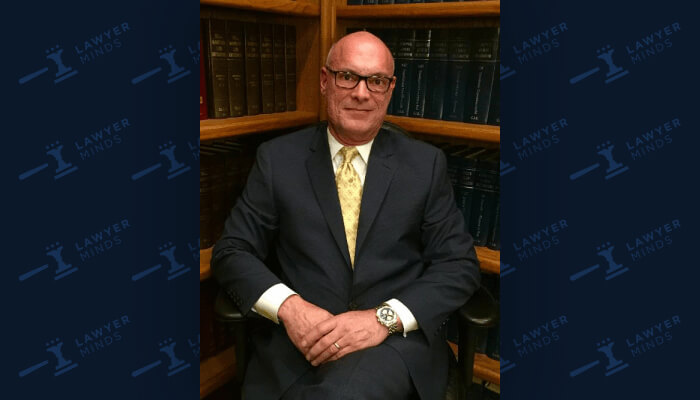Interview with Alan Belsky

Alan Belsky has dedicated his life to protecting the community of Baltimore and improving the lives of the people who live there. A graduate of the University of Baltimore School of Law, Alan also serves on the Board of Directors of the Bar Library Company for Baltimore City and is a peer review panel member of the Maryland Attorney Grievance Commission. Besides his passions for representing individuals who are seriously injured, Alan also dedicates his time to representing indigent individuals on a pro bono basis and was instrumental in establishing the Maryland State Bar Association section on consumer bankruptcy. Below, Alan shares his insight into what has guided him during his career and as managing partner for Belsky, Weinberg & Horowitz, LLC.
Why did you decide to become a trial lawyer?
During my undergraduate and graduate days, I held a number of leadership positions such as Student Government President, Student Senate President, and Editor-in-Chief of the Law Review. Those positions required a great deal of interaction and advocacy with students, professors, and school administrators and also allowed me to hone my public speaking skills. I also had been a lead guitarist in a rock band during my high school days that helped me to overcome “stage fright.” Politics and political debate were always a part of my upbringing as well. Finally, I am a fighter and believe in second chances and frequently side with the underdog. Based on all of these life experiences, I was always inclined to be go before judges and juries to advocate for the rights of my clients.
What advice do you have for new trial lawyers?
Always consider the strengths and weaknesses of your position and those of opposing counsel. Avoid conspiratorial theories as the cause for losing arguments or cases. Hone your listening skills. Don’t be afraid to admit that you don’t know the answer. Ask questions. Know your limitations. Don’t procrastinate.
“Follow your gut instinct. Don’t represent clients who are unduly adversarial, unreasonable, and antagonistic and who don’t adhere to the same principles and beliefs you do.”
What is the most rewarding experience you’ve had as a lawyer?
Litigating medical malpractice cases before juries and obtaining multi-million dollar jury verdicts for deserving clients.
How do you find time for family, friends, and other responsibilities in the middle of a trial?
“Trial mode” is a well-known phenomenon in our household and around the firm. Finding quality time with family and friends is very difficult in the midst of a trial. I have found that establishing parts of days or evenings to put things down and focus on things other than the trial is the best way—in other words, time management.
After deciding to take on a case, what initial steps do you take?
“Taking on a case” in my practice means an agreement to investigate the liability and causation elements of a claim by securing all available records and reviewing the information contained therein along with the clients’ accounts of what they maintain occurred. A full blown “investigation” is undertaken although the information that is available and accessible pre-litigation is limited.
“I also continue to assess and reassess the likelihood of success and any other client issues that may impact my ability to achieve a successful result. Sometimes, the merits of the case are favorable, but the clients’ needs and demands may prove more difficult than initially understood and may prove unworkable.”
What do you wish you would have known about your career before becoming a lawyer?
That justice is not blind.
What case or trial has had the biggest impact on your career?
Stracke v. Estate of Butler, a case decided by the Court of Appeals of Maryland in late 2019. Over the long course of this case I experienced the thrill of victory and the agony of defeat multiple times with an ultimate defeat in a 4-3 decision that changed the legal landscape of the standard of proof in gross negligence cases against medical first responders. The dissenting opinion sets forth a true account of the facts whereas the majority glosses over those facts and represents a result-oriented opinion designed to favor first responders and establishes a separate standard of proof in cases against them.
Thanks again to Alan for sharing his insights with Lawyer Minds. Please also take some time to visit Alan’s organization of choice, Prostate Cancer Foundation, which funds the world’s most promising research to improve the prevention, detection, and treatment of prostate cancer and ultimately cure it for good.


